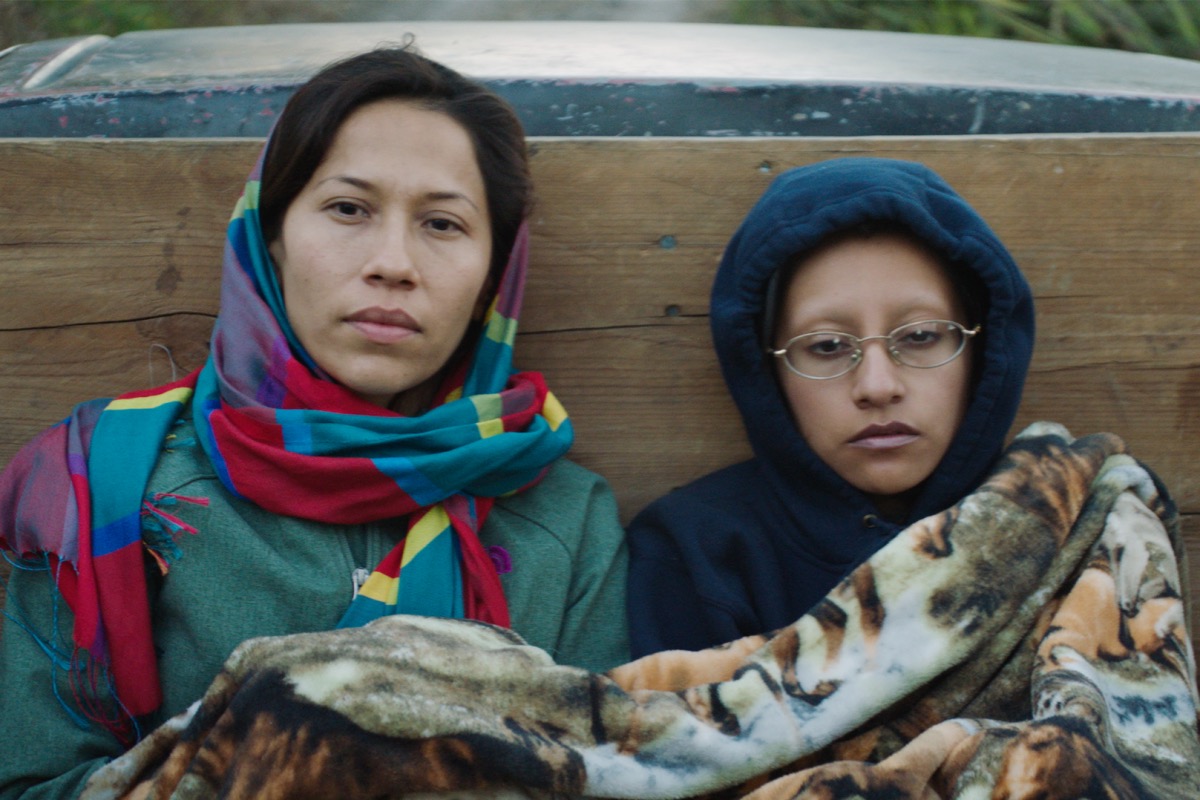

Frida Cruz and Karen Daneida star in ‘Hope, Soledad,’ directed by Yolanda Cruz.
The movie Hope, Soledad is quiet but moving—it takes about 15 minutes before there is any meaningful dialogue in the indie film from Sundance Labs alumni Yolanda Cruz. Portraying so many silent moments of reflection, Hope, Soledad is a deeply personal film about grief, healing, and what it is to be a Mexican woman today.
After showing at nearly a dozen festivals —including the Los Angeles Latino International Film Festival, where Latino Rebels caught up with the filmmaker—– Hope, Soledad is currently playing at the Cinequest Film & Creativity Festival in San Jose, California, with a final screening at the Hammer Theatre Center on Wednesday, August 23.
The film’s two titular characters meet on a pilgrimage to La Virgin de Juquila in Oaxaca, each on their own journey of transformation. Hope is a college-aged Chicana, back in the place where her extended family lives and simmering with quiet anger. Soledad is a generation older, a married Mexican national whose husband is in the U.S.
“In this community that I come from, you don’t talk a lot about your emotions. You don’t scream your emotions. Everything is kind of quiet. It’s quiet moments and walking,” Cruz, the film’s director and screenplay writer, tells Latino Rebels. “This one was really about emotions. And it’s very subtle, which is difficult. We had a hard time in the editing room, bringing that up, but without overdoing it.”
The film mirrors a lot of Cruz’s personal experience as an Indigenous Mexican woman from a small town near Santa Catarina Juquila who’s also spent a lot of time in Los Angeles. She could relate to both characters, wondering at the effectiveness of Soledad’s bargain to trade financial stability for emotional stability while empathizing with Hope’s ni de aquí, ni de allá troubles.
“They’re kind of like the same women in different formats,” the filmmaker says.
Cruz calls Soledad “not your typical protagonist in Mexican film.” While Indigenous women are often portrayed as either saddled with big families or lonely maids in a big city, Soledad is different.
“She’s independent,” Cruz explains. “She’s attractive, young, strong, but also stuck in this relationship… She’s walking there because her lover died and she cannot go to the funeral.”
Cruz wrote the script when Trump was in office, and she remembers seeing “all these deportations, all these young people in fear of going back.” Through the Hope character, Cruz explores “what happens when you go back? Going back to a place that you don’t really remember, you have some roots to, but it’s not really home.”
The film’s plot is about how the two women process their grief to arrive at peace. “We all have gone through a process of mourning, and coming out of it and feeling good about it,” Cruz explains. “So that’s what I wanted to share.”
To heal, the women walk through Oaxaca, with the road to La Virgin de Juquila becoming a third character in the film. “When one is walking (you form) this connection with nature. And… in nature, you connect with yourself. I think that’s why a lot of people do this pilgrimage. And this is why it was important for me to show that it’s not just arriving,” says Cruz. “The work is in that beautiful landscape. I wanted to show you this beautiful land that we don’t get to see often.”
When two women finally arrive at Santa Catarina Juquila, both get a limpia, or spiritual cleansing, another detail that reflects Cruz’s personal experience. “The healer is my aunt,” she says. “Every time I go, it’s like you have to have a limpia. With all this tourism, this is becoming a little bit cliche, but it’s also how the Indigenous communities lived. This is how they were able to keep on surviving—because we have faith in our ancestors, and we have faith in nature. As a community, we move together. I wanted to show those two things. For us, there isn’t really that difference (between nature, faith, and ourselves).”
With that ethos, Hope, Soledad is an arresting, powerful film portraying a different slice of Latinidad than is normally seen on screen. It centers the interior lives of two Indigenous Mexican women, drawing on their own cultural traditions in a world that does not value them.
The result is a beautiful film —at times peaceful, other times difficult— but compelling throughout.
***
Cristina Escobar is the entertainment reporter for Latino Rebels. She is also the co-founder of latinamedia.co, uplifting Latina and gender non-conforming Latinx perspectives in media. She’s a member of the Latino Entertainment Journalists Association and writes at the intersection of race, gender, and pop culture. Twitter: @cescobarandrade


